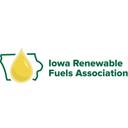Policy
The U.S. EPA on Jan. 16 released updated small refinery exemption (SRE) data, showing 11 new SRE petitions have been filed under the Renewable Fuel Standard. The agency denied one SRE petition and 139 SRE petitions remain pending.
The USDA on Jan. 15 published an interim rule that establishes guidelines for quantifying, reporting and verifying GHG emissions associated with the production of biofuel feedstock commodity crops grown in the U.S.
The U.S. Department of Energy on Jan. 15 released the 45ZCF-GREET model. The announcement follows the U.S. Department of the Treasury and Internal Revenue Service guidance on the 45Z clean fuels production credit released on Jan. 10.
The U.S. DOE, USDA and FAA on Jan. 13 released Sustainable Aviation Fuel (SAF) Grand Challenge 2021-2024 Progress Report, which underscores the importance of continued investment in the rapidly growing biofuels industry.
In 2024, Iowa biodiesel production ticked up to 353 million gallons, up from 350 in 2023. Iowa biodiesel plants managed to power through being undercut by a drastically low RFS blending level, but could not escape uncertainty surrounding tax policy.
DOE announces $25 million to advance the US aquaculture industry for biomass production in the deep ocean
The U.S. DOE Advanced Research Projects Agency-Energy (ARPA-E) has announced $25 million to develop a U.S.-led marine energy hydrocarbon and industrial commodity supply through the deep-water cultivation of seaweed biomass at million-ton scale.
The U.S. Department of Energy Bioenergy Technologies Office (BETO) announced up to $23 million in funding to support research and development (R&D) of domestic chemicals and fuels from biomass and waste resources.
The USDA on Jan. 10 awarded $60 million in Higher Blends Infrastructure Incentive Program grants. The funding supports 70 projects in 24 states that aim to increase consumer access to higher blends of ethanol and biodiesel.
Calumet Inc. on Jan. 10 announced the closing of a $1.44 billion U.S. Department of Energy loan guarantee to fund construction of Montana Renewables’ MaxSAF initiative, which aims to boost SAF capacity at the biorefinery to 300 MMgy.
Treasury and the IRS on Jan. 10 released guidance on the 45Z clean fuels production credit, including a notice of intent to propose regulations and a notice providing the annual emission rate table for the credit.
The Missouri Agricultural and Small Business Development Authority (MASBDA) announced it has invested nearly $3.4 million in projects that increase the distribution and use of higher blends of ethanol and biodiesel in the State of Missouri.
Tidewater Renewables Ltd. has filed a countervailing (anti-subsidy) and anti-dumping duty complaint with the Canada Border Services Agency. The complaint targets unfairly traded imports of renewable diesel from the U.S.
USDA announces appointments to the Greenhouse Gas Technical Assistance Provider and Third-Party Verifier Program Advisory Council
The USDA has appointed 36 members to serve on the newly formed Greenhouse Gas Technical Assistance Provider and Third-Party Verifier Program Advisory Council, informally known as the Growing Climate Solutions Act Advisory Council.
The U.K.’s sustainable aviation fuel (SAF) mandate officially came into force on Jan. 1. By law, SAF must now account for at least 2% of all jet fuel in flights taking off from the U.K. The mandate is set to expand to 10% in 2030 and 22% in 2040.
Vertex Energy Inc. could be required to retire over 18.7 million RIN by March 31, 2025, to satisfy its 2023 and 2024 RFS blending obligations under a proposed Consent Decree and Environmental Settlement Agreement lodged by the U.S. government.
The U.S. EPA on Jan. 2 denied two small refinery exemptions (SREs) for RFS compliance year 2023, according to updated data posted to the agency’s online SRE data dashboard. No other actions were taken and 129 SRE petitions remain pending.
The U.S. DOE has announced its intent to issue funding to support high-impact research and development (R&D) projects in two priority areas: sustainable propane and renewable chemicals and algal system cultivation and preprocessing.
The U.S. EPA on Dec. 19 released data showing that 2.03 billion RINs were generated under the RFS in November, up from 2.01 billion generated during the same month of 2023. Nearly 22.9 billion RINs were generated during the first 11 months of 2024.
The U.S. EPA on Dec. 19 released updated small refinery exemption (SRE) data reporting that one new SRE petition has been filed under the Renewable Fuel Standard during the past month. According to EPA, 131 SRE petitions are currently pending.
The USDA Rural Business Cooperative Service on Dec. 13 announced it is extending the deadline to apply for the agency’s Section 9003 loan guarantee program. Applications must now be submitted before Dec. 31.
The U.S. DOE has announced $52 million in funding for six university and industry projects to advance the production of low carbon intensity, purpose-grown energy crops critical to accelerating a clean energy bioeconomy.
CoBank predicts that U.S. production of renewable diesel and associated fuels will experience a modest boost in 2025 but cautions that policy uncertainty looms over administration of the RFS program, SREs and the impact of potential tariffs.
Congress on Dec. 17 released the text of a short-term funding bill that aims to avoid a partial government shutdown. The package includes provisions allowing year-round sales of E15 and enacting a new one-year extension of the 2018 Farm Bill.
Biomass Magazine has released the agenda for the 18th Annual International Biomass Conference & Expo. The event will be held March 18-20 in Atlanta, Georgia, and features tracks focused on pellets, biomass power and thermal, biogas and RNG, and SAF.
Sens. Joni Ernst, R-Iowa, Roger Marshall, R-Kan., and four of their colleagues on Dec. 13 sent a letter to U.S. EPA Administrator Michael Regan regarding surging imports of used cooking oil (UCO), much of which comes from China.
The White House OMB on Dec. 13 published the Fall 2024 Unified Agenda and Regulatory Plan, which outlines regulatory actions under development by federal agencies related to the RFS, biofuel infrastructure and CO2 pipeline safety.
Ethanol groups urged congress to extend the 45Z clean fuel production tax credit and ensure the credit takes a broad approach to climate-smart agriculture (CSA) practices in comments filed with the U.S. House Ways and Means Committee on Dec. 13.
Ethanol Producer Magazine and BBI International are now accepting speaker presentation proposals for the 2025 International Fuel Ethanol Workshop & Expo (FEW). The event is scheduled for June 9-11, 2025, in Omaha, Nebraska.
The USDA on Dec. 6 delivered an interim final rule setting technical guidelines for climate-smart agriculture crops used as biofuel feedstocks to the White House OMB. OMB review marks a final step before a rule is promulgated.
New deep-dive videos about the U.S. Department of Energy Bioenergy Technologies Office's 2023 Billion-Ton Report (BT23) are now available to help users access and apply the report findings and associated online data resources.
Advertisement
Advertisement

































